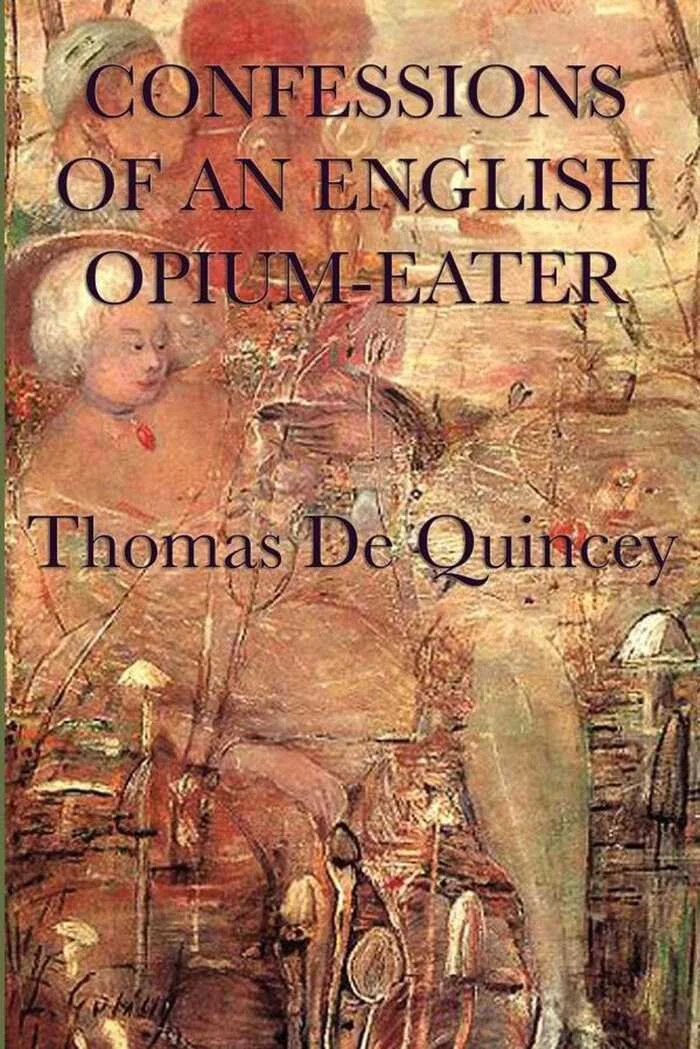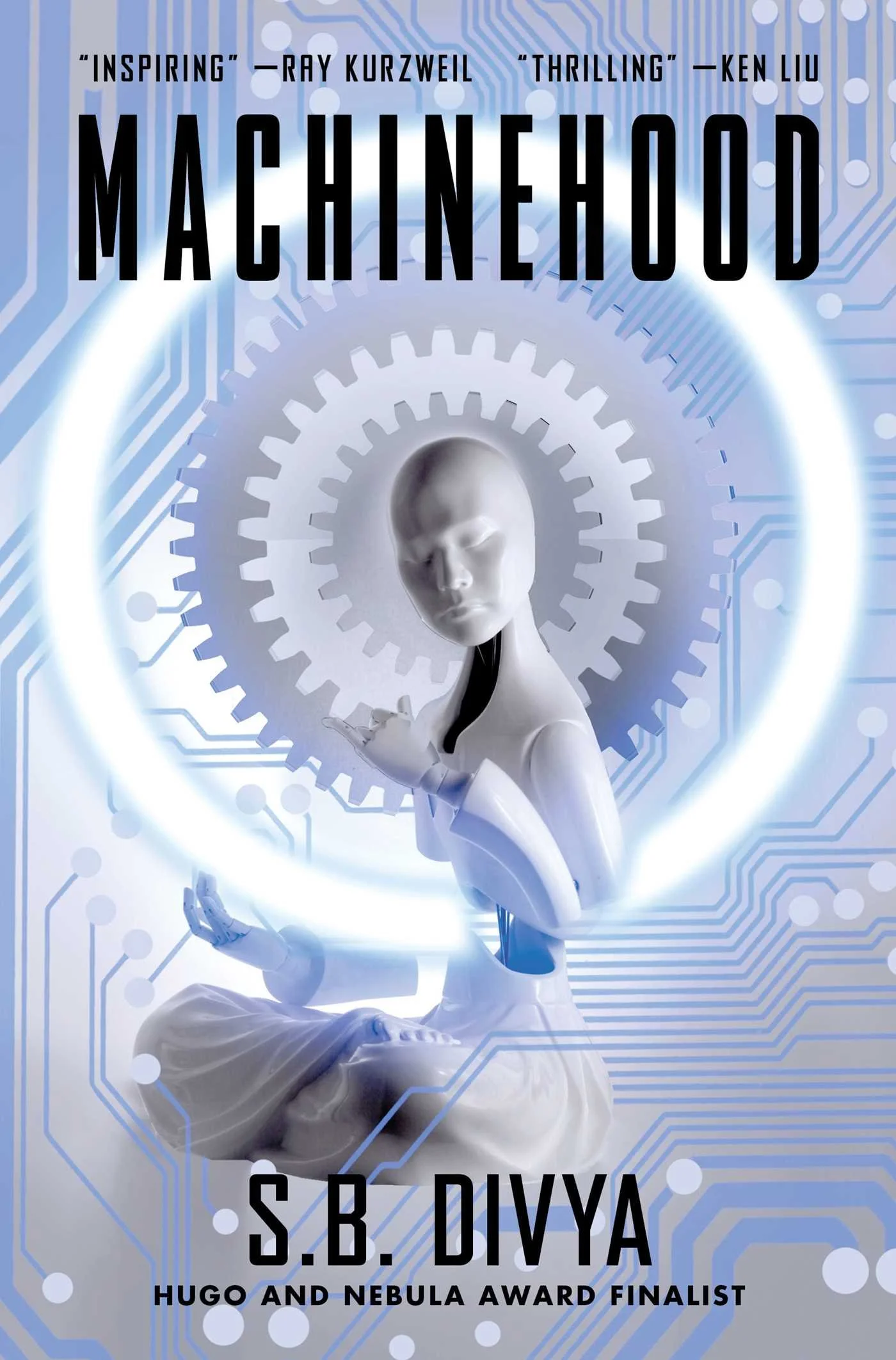BOOKS
Here are some books that are available to read online.
The Death of the Moth
Virginia Woolf
The Death of the Moth is a narrative essay in which Virginia Woolf writes about the wretched and pitiful death of a moth. Though the narrator uses a pencil to save the moth, her attempts are futile. The essay prompts contemplation on the cycle of life and death, on the fleeting nature of existence.
Madness And Civilization: A History Of Insanity In The Age Of Reason
Michel Foucault
In Madness and Civilization, Michel Foucault examines the archeology of madness in the West from the late Middle Ages, when insanity was still considered part of everyday life and fools and lunatics walked the streets freely, to the time when such people began to be considered a threat, asylums were first built, and walls were erected between the 'insane' and the rest of humanity.
Confessions of An English Opium Eater
Thomas Quincey
Confessions of an English Opium-Eater is an autobiographical account written by Thomas De Quincey, about his opiod addiction and its effect on his life. Quincey takes readers on a journey from his grammar school childhood to his homeless adolescence in Wales, from befriending sex-workers during his nocturnal wanderings in London to enrolling at Oxford University only to drop out when his drug use overcomes him.
Unhinged: On Jitterbugs, Melancholics and Mad-Doctors
Andrew Scull, Patrick Allegaert, Bart Marius
Unhinged is a richly illustrated book that tells the story of fools, idiots and madmen, whilst stressing the importance of mental wellbeing in an increasingly complex society. Originally an accompaniment to an exhibition at Museum Dr. Guislain, the book provides an overview of psychiatry on the basis of five contemporary themes that enter into dialogue with each other: 'power and powerlessness', 'body and mind', 'architecture', 'classification' and 'imagination'.
The Anatomy of Melancholy
Robert Burton
On its surface, The Anatomy of Melancholy is presented as a medical textbook in which Robert Burton deals with the subject of melancholia (which includes, although it is not limited to, what is now termed clinical depression). Although presented as a medical text, the book oftens uses satire, fantasy, and stream of consciousness in order to address melancholy.
Matter and Memory
Henri Bergson
In Matter and Memory, Henri Bergson constructs an argument against reducing human memory to mere matter. A philosophical journey into the understanding of memory, Bergson strives to show how the 'spirit' cannot be reduced to mere matter, and how memory cannot be singularly traced back to the brain's nervous system.
Hyerbole and a Half: Flawed Coping Mechanisms, Mayhem, and Other Things That Happened
Allie Brosh
Hyperbole and a Half is a webcomic and blog written and illustrated by Allie Brosh. In this story, she shares her personal experiences with depression. Traversing through themes of self-pity, willpower, anger, and more, this comic presents lived experience in a stark yet light manner.
Can’t get enough of these books? Here are some more books you can check out!
Children of Time
Adrian Tchaikovsky
The last remnants of the human race left a dying Earth, desperate to find a new home among the stars. Following in the footsteps of their ancestors, they discover the greatest treasure of the past age—a world terraformed and prepared for human life. But all is not right in this new Eden. With warriors, mindless ants, and spiders making appearances in the story, Children of Time reimagines ideas of artificial intelligence.
Monkeyluv: And Other Essays on Our Lives as Animals
Robert Sapolsky
How do imperceptibly small differences in the environment change one's behavior? What is the anatomy of a bad mood? Does stress shrink our brains? What does People Magazine's list of America's '50 Most Beautiful People' teach us about nature and nurture? What makes one organism sexy to another? Who will be the winner in the genetic war between the sexes? Monkeyluv is a curious and entertaining collection of essays about the human animal in all its fascinating variety.
Phantoms in the Brain: Probing the Mysteries of the Human Mind
V.S. Ramachandran
In Phantoms in the Brain, V.S. Ramachandran recounts how his work with patients who have bizarre neurological disorders has shed new light on the deep architecture of the brain—what these findings tell us about who we are, how we construct our body image, why we laugh or become depressed, why we may believe in God, how we make decisions, deceive ourselves and dream, and even why we're so clever at philosophy, music and art.
Descartes' Error: Emotion, Reason and the Human Brain
Antonio R. Damasio
Since Descartes famously proclaimed, "I think, therefore I am," science has often overlooked emotions as the source of a person’s true being. In this book, Antonio Damasio challenges traditional ideas about the connection between emotions and rationality. Damasio takes readers on a journey of scientific discovery through a series of case studies, demonstrating that emotions are not a luxury, but rather essential to rational thinking and social behavior.
No Aging in India: Alzheimer's, The Bad Family, and Other Modern Things
Lawrence Cohen
Drawing on more than a decade of ethnographic work, Lawrence Cohen links a detailed investigation of mind and body in old age in four neighborhoods of the Indian city of Varanasi with events and processes around India and around the world. This exploration of senility—encompassing not only the aging body but also larger cultural anxieties—combines insights from medical anthropology, psychoanalysis, and postcolonial studies. Cohen brings the reader's attention toward how old age comes to matter in the constitution of societies and their narratives of identity and history.
I Am A Strange Loop
Douglas Hofstadter
Can thought arise out of matter? Can self, soul, consciousness, 'I' arise out of mere matter? If it cannot, then how can you? I Am a Strange Loop argues that the key to understanding selves and consciousness is the 'strange loop'—a special kind of abstract feedback loop inhabiting our brains.
Machinehood
S.B. Divya
Welga Ramirez, executive bodyguard and ex-special forces, is about to retire early when her client is killed in front of her. It’s 2095 and people don’t usually die from violence. Humanity is entirely dependent on pills that not only help them stay alive, but allow them to compete with artificial intelligence in an increasingly competitive gig economy. Daily doses protect against designer diseases, flow enhances focus, zips and buffs enhance physical strength and speed, and juvers speed the healing process. Set in a world all too familiar yet alien, Machinehood asks: if we won’t see machines as human, will we instead see humans as machines?
The Analyst and the Mystic: Psychoanalytic Reflections on Religion and Mysticism
Sudhir Kakar
The centerpiece of The Analyst and the Mystic is the story of the nineteenth-century Bengali mystic and Hindu saint Sri Ramakrishna. Using Ramakrishna's life as a case study, Kakar discusses in depth three interacting factors that he feels may be essential in the making of an ecstatic mystic: particular life historical experiences, the presence of a specific artistic or creative gift, and a facilitating cultural environment.
The Body Keeps Score
Bessel van der Kolk
Trauma is a fact of life. Bessel van der Kolk, one of the world’s foremost experts on trauma, has spent over three decades working with survivors. In The Body Keeps the Score, he uses recent scientific advances to show how trauma literally reshapes both body and brain, compromising sufferers’ capacities for pleasure, engagement, self-control, and trust. He explores innovative treatments—from neurofeedback and meditation to sports, drama, and yoga—that offer new paths to recovery by activating the brain’s natural neuroplasticity.
In Search of Memory: The Emergence of a New Science of Mind
Eric R. Kandel
Memory binds our mental life together. But how does the brain create memories? Neuroscientist Eric Kandel intertwines the intellectual history of the powerful new science of the mind—a combination of cognitive psychology, neuroscience, and molecular biology—with his own personal quest to understand memory. In Search of Memory is a deft mixture of memoir and history, modern biology and behavior.
RX
Rachel Lindsay
In her early twenties in New York City, diagnosed with bipolar disorder, Rachel Lindsay took a job in advertising in order to secure healthcare coverage for her treatment. Her work took a strange turn when she was promoted onto the Pfizer account, developing ads for an antidepressant drug.
Rx is a whirlwind of tragi-comic mayhem, starting from her being hospitalized against her will, then winding back to the events leading up to it.
This Is Your Mind on Plants
Michael Pollan
In This Is Your Mind on Plants, Michael Pollan dives deep into three plant drugs—opium, caffeine, and mescaline—and throws the fundamental strangeness, and arbitrariness, of our thinking about them into sharp relief. Exploring and participating in the cultures that have grown up around these drugs while consuming (or, in the case of caffeine, trying not to consume) them, Pollan reckons with the powerful human attraction to psychoactive plants.
The Aesthetic Brain: How We Evolved to Desire Beauty and Enjoy Art
Anjan Chatterjee
Why do we covet beauty? Why is art fundamental to our lives? Such questions have long fascinated philosophers, artists, and scientists.The Aesthetic Brain explores the field of neuroaesthetics, and the science of how our brain experiences and responds to art, music and objects of beauty. Anjan Chatterjee, a neuroscientist, argues that an instinct for beauty has helped our species endure.




















